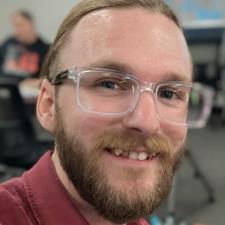I earned an Associate of Arts in Mathematics with high honors and am now completing my junior year in the Physics B.S. program at Arizona State University while also pursuing a certificate in Organizational Management. The mix of proof-based math courses, calculus through differential equations, and upper-division mechanics gives me both the procedural fluency and conceptual depth students expect from a specialist. My academic record qualified me for the faculty-selected tutor pool at Mohave...
I earned an Associate of Arts in Mathematics with high honors and am now completing my junior year in the Physics B.S. program at Arizona State University while also pursuing a certificate in Organizational Management. The mix of proof-based math courses, calculus through differential equations, and upper-division mechanics gives me both the procedural fluency and conceptual depth students expect from a specialist. My academic record qualified me for the faculty-selected tutor pool at Mohave Community College, where I currently guide learners across algebra, precalculus, and introductory statistics.
Over the past two years I’ve logged more than 600 tutoring hours with students ranging from motivated eighth-graders to returning adults who describe themselves as “math-phobic.” In the MCC Learning Commons I handle drop-in tables of three to six learners, but I also provide one-on-one Zoom sessions for distance students and veterans using the GI Bill. Outside campus I volunteer with a local after-school STEM club, designing quick-fire activities (probability games with dice, basic coding in Python) that turn abstractions into something students can hold in their hands. This breadth keeps my explanations bilingual: formal enough for engineers, friendly enough for liberal-arts majors who just need to pass finite math.
My method pairs systems thinking with Socratic questioning. I start by mapping where a new concept lives inside the larger “math ecosystem,” then break problems into bite-sized checkpoints so students see exactly where they get stuck. We work problems aloud, annotate them on shared whiteboards, and close each session with a micro-reflection that students write in a sentence or two—an evidence-based technique shown to double retention. Scores rise, but what matters more to me is the moment a learner stops memorizing steps and starts predicting them. That shift from dependency to agency is the metric I track, and it’s why I love this work.

